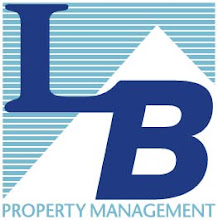This is obviously an extreme case, and who knows maybe your boss will laugh it off. But the real message here is "Are your email messages holding you back or helping you get ahead?" I recently read a book entitled Send, written by David Shipley and Will Schwalbe. The ideas below predominantly come from this book and the balance comes from my personal opinions and experiences.
We all use email these days to communicate, just as we previously used the fax machine, telephone calls, memos, letters and meetings. While none of these other forms of communication have become obsolete, email certainly has taken over much of the communication market share these days. Keep in mind, email is a very new form of communication and really got started around 1990. Despite the fact that it has been around less than 20 years, it's use continues to increase exponentially. For example, President Clinton's administration turned over approximately 32 million emails to the National Archives. Eight years later the Bush administration turned over more than 100 million emails. The use of email in businesses and for personal use has grown in similar fashion. As with all technology it takes time to perfect the use of the new tool. Now is the time for you to take a look at how you communicate via email in business situations. We will avoid discussions about personal email at this time.
The Deadly Sins of Email:
Let's start by listing the "8 Deadly Sins of Email" as listed in the book entitled Send. If any email you write falls into these categories, don't send the message. Delete the message and start over.
- The email that is unbelievably vague.
("Remember to do that thing") - The email that insults the recipient so badly they have to leave their desk.
(HOW CAN YOU NOT HAVE DONE THAT THING?!!!!") - The email that puts you in jail.
("I got rid of the evidence. You should shred your documents too") - The cowardly email.
(This message is to let you know you are being let go.") - The email that won't go away.
(Re:Re:Re:Re:Re:Re:Re: that thing) - The sarcastic email that makes the recipient want to get up from their desk.
(Smooth move on that thing. REALLY SMOOTH.") - The email that is too casual
(Hiya! any word on that promotion thing?) - The email that is inappropriate.
(Want to come to my hotel room to discuss that thing?")
These are good for starters but I have a couple others that I personally consider email sins.
- The lazy email.
("Please advise.").
That's it. That's the whole message. Typically the sender has attached a letter or some other document, offers no opinion of their own and sends it to their supervisor. While the sender thinks they are merely asking for assistance they are sending the message to their supervisor that either they have not taken the time to give the matter any thought or they do not have the ability to come up with even a single solution to the problem. Is that the message you want to send? Would you walk up to your boss and hand him a document and simply say "Please advise." No of course you wouldn't. Communicate in email as though you were speaking with the person directly - The email follow up.
This is when the email author calls or stops a coworker within a few minutes or even hours after sending a message to ask, "Did you get my email?". This is a huge time waster and defeats the very purpose of communicating via email. It shows a lack of respect for the person to whom you are writing. - The email sender who always hits "Reply All".
Too often people think that if somebody was copied on the original message they should be copied on every response generated. Sometimes they do need to be copied but certainly not on every 'Thank You" or "Me too!" message. Before hitting "reply all" and sending any email, ask yourself is the message even necessary. Sometime no response is the best response. If everyone else does not need the information reply only to those who do need the information.
Bob Geldof, a famous musician and businessman recently said he hates email because it gives us a "feeling of action" even when nothing is actually happening. This is a valuable thing to keep in mind as we write email messages every day. It is an easy trap to fall into and if we do not give the proper amount of thought to when to send an email and about the content of that email we can do more damage than good. Activity is not to be confused with productivity. One can send hundreds of emails everyday but accomplish nothing. With that in mind let's go over how to construct an effective email message. There is more to it than you think.
A quick checklist before you send that next email message:
- Who is the recipient and what is your relationship to them?
Employee - Boss; coworker - coworker; supervisor - subordinate; friend to friend. The content of the message should be determined by this relationship. For example you would not send an email to the CEO about some small issue just as you would not interrupt his day by walking into his office with that minor complaint. Because emails so easy to shoot out to the world we often forget to give any thought to the message before it goes out. - Would you have the same exchange if it were in person?
If the answer is no rewrite your message. - Is the email too familiar?
You should not lose a sense of decorum because you are communicating with email. People make the mistake of thinking email is somehow more casual than other forms of communication and therefore common courtesy and respect is dropped. This can be a costly mistake professionally. - Who is in the 'To" line?
Give this some thought. Include only one person in the "To:" line whenever possible. It indicates a need for that person do something. If you put more than one, specify what each person listed is to do in the body of the text. Don't hope they understand who is to do the tasks. For example see the message below. Who is supposed to bring the slides?
To: Bob, Susie, Jane
Re: slide show
From: Craig
Please bring the slides, the projector and the coffee. - Who is in the "cc" line?
Consider this an FYI line. You use it to keep people informed. The recipient will assume no action required when they see their name in the "cc" line. - Who is in the "bcc" line?
This is a tricky one and is used when you do not want to let others know who else may be copied on the message. Avoid this entirely except when you are trying to protect the recipients by hiding their email addresses. If you want to send a message to a party you don't want included on the original message, for whatever the reason, just send a separate message only to that person. To help keep privacy with email addresses: Use the bcc field. Check out this site for more details on that topic. http://bccplease.com/ - Did you use the "Subject" line?
The subject should be clear and informative never blank. You also want to be careful not to use words that cause your recipient's computer to interpret your message as spam. The following site will give you the top 100 words not to use in you subject line. http://www.digitaldialogue.com.au/marketing/131-top-100-words-not-to-use-in-your-email-subject-lines - Should I be responding with an email or is a fax, letter or meeting more appropriate?
Email is not the correct answer always. Sometimes your response to an email message should be a letter because the situation demands a more personal touch. A meeting may be best if the matter is sensitive, a fax may be better because they need an original signature and a call may be needed because you need to convey emotions. There are many other reasons to use other forms of communication as well but the important idea here is to give the matter some thought. Because somebody communicated with you via email does not mean the response should be an email. - To include attachments or not to include attachment?
First consider whether or not the attachments are necessary. If possible include the information in the body of the message and skip the attachments. Don't just send the attachments with little or no explanation and if you know the person works on a handheld regularly explain a bit about what the attachment contains because often attachments are difficulty to access and read on a handheld.
There are many other pointers available for writing emails, managing emails and communicating in today's business world. I recommend reading "Send" if you really want to fine tune your use of email. It just may be the thing that is holding you back. the world is full of hard workers but if they do not grow and cannot demonstrate the ability to continue to learn, even the hardest of workers can get passed by as their peers get promoted. You can learn more about the book at the following link; http://www.thinkbeforeyousend.com/index.php?c=book.
Another site with some of the same ideas discussed above as well as some other really great ideas not addressed her is http://www.emailreplies.com/
My thanks to Brian Theobald who contributed to this post prior to it being published.
If you have some additional thoughts on the subject please share them via the comments button below. Thanks





